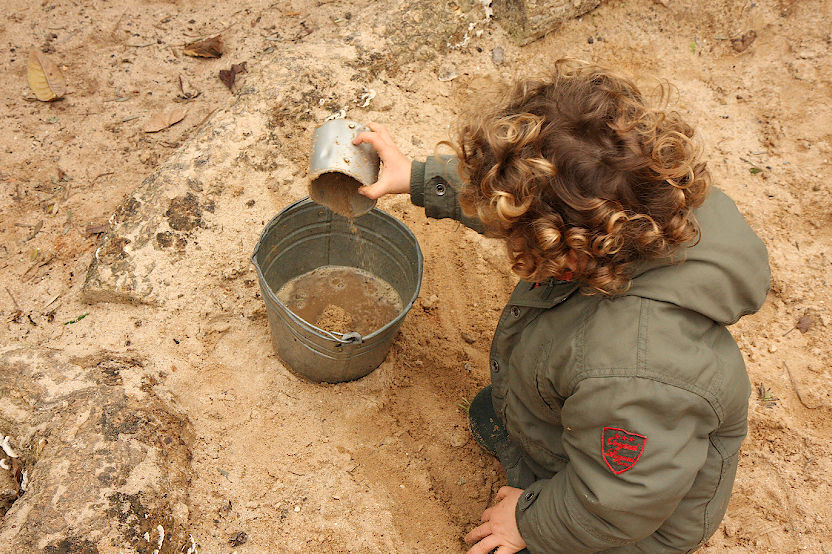One should educate in a way that removes physical and etheric obstacles so that which, coming from the divine order, infiltrates the children as a novelty in each season of the world, and which creates for the child an environment in which the child’s spirit can infiltrate life with complete freedom.
(GA 301 Rudolf Steiner)
The daily task in which the children participate allow them to experience notions of quantity, space and time. The experiences of the annual rhythms, seasons and festivities give them a notion of intrinsic time associated with what are their internal experiences. The notion of time is marked by the seasons naturally lived in all of the preparations, such as the colours of nature which enter the classroom and rest on the season table, the types of work that are done with wool or wood and the vegetables which are used in lunch.
Sensible and useful experiences infuse the child with a sense of motivation and work ethic which later will transform into concrete action to interact with the world.

The experiences of space and time are grounded in the development of lucid activities, board games, activities of matching sequential and form patterns, the baking of cakes or other culinary activities, preparing the table for meals, preparing the daily activities, the clean up of materials, dividing the children in a sequential way, pencil crayons and blocks of wax separated by colours. During the moment of free play, in the “store”, or the “restaurant” among other possibilities the act of “paying bills” offers multiple situations of unlimited potential for children to develop mathematical notions.
The notions of space are experienced in diverse daily tasks such as putting away the pine cones, filling a cup with water, or making a house under the table with cloths. Just as in the other areas of content, mathematics is found everywhere and lived daily by the children, in different forms according to their personal development.
The participation of the children in the preparation of meals, making bread, taking care of the garden, loving nature and the subsequent activities of preparation and maintenance, caring for the organic garden and spiral of aromatic herbs, dying and painting with pigments extracted from plants, cleaning, combing, straightening, rolling and felting sheep’s wool are the activities related to learning which helps in the development of holistic and integrated form with each specific activity.